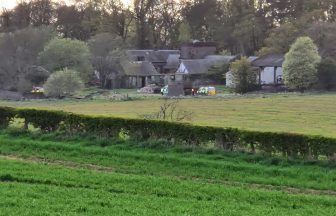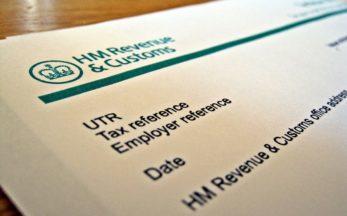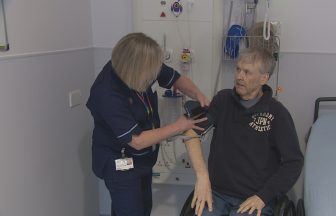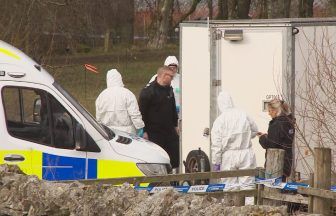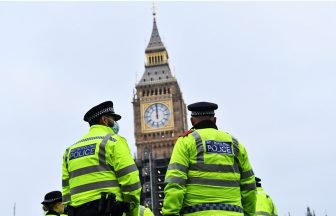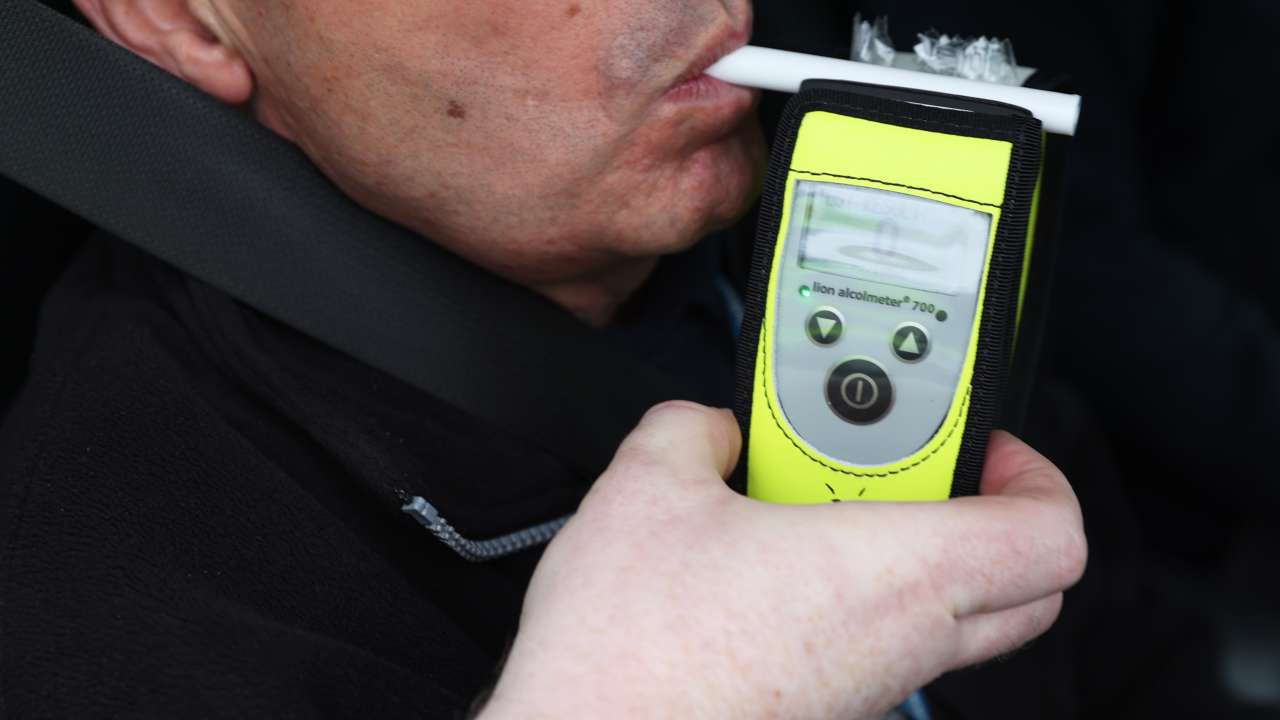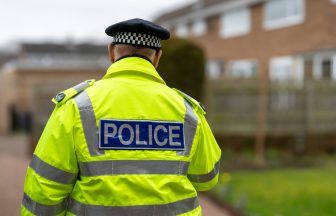Police Scotland has been reported to the health and safety watchdog over the use of breath tests on suspected drink-drivers.
The Scottish Police Federation (SPF) said it had taken the “extraordinary step” of reporting the force to the Health and Safety Executive due to fears that officers may be exposed to coronavirus.
The SPF represents around 98% of rank-and-file officers in Scotland.
In a letter to members, general secretary Calum Steele said there were safer alternatives such as testing urine samples which should be used to police drink-driving.
The SPF’s panel of scientific and medical experts supported its stance, the letter said.
Police Scotland said it was applying a “comprehensive” risk assessment to all of its guidance for officers and said it is following the advice of the HSE as well as Health Protection Scotland (HPS) and the National Police Chiefs Council (NPCC).
Police officers who carry out roadside breath tests have been told to wear masks and gloves, with the option of tougher PPE if coronavirus is suspected.
But Mr Steele questioned the safety of “asking any member of the public to empty their lungs in the immediate proximity of a police officer, through a narrow tube which accelerates expelled breath”, as happens in roadside breath tests.
He wrote: “Covid-19 is known to be transmitted through respiratory droplets and it is known that in the majority of cases the carrier may present no, or mild symptoms.
“The SPF, advised by our panel of experts, and a wealth of published scientific materials, is firmly of the view the (Police Scotland) operational guidance in respect of breath test procedures neither reflects best risk
management practices, or properly mitigates risk to officers.
“Colleagues will know from their own experiences that suspects often take several attempts to generate enough lung capacity and technique to be able to successfully comply.”
Mr Steele said the SPF had served Police Scotland with a health and safety improvement notice on April 30, followed by a further letter to and then a meeting with the force in May outlining their concerns.
But he accused Police Scotland of not engaging on the issue, and at the meeting on May 15 had rejected scientific evidence they had offered without “proper examination”.
Responding to the SPF, Police Scotland deputy chief constable Fiona Taylor said: “We follow the advice and direction of Health Protection Scotland (HPS), the Health and Safety Executive and the National Police Chiefs Council (NPCC) and apply a comprehensive operational policing risk assessment when developing guidance for officers and staff.
“Police Scotland is meeting, and often exceeding, the relevant guidelines.
“We have sought to assist HPS, the HSE and the NPCC to clarify guidance with a focus on policing scenarios and we have passed information provided by the Scottish Police Federation to those organisations to support that work.
“We recognise our moral, ethical and legal duty to the safety and welfare of our officers and staff and will continue to work with staff associations and unions as policing continues to play its vital role in the national effort to combat coronavirus.”
Follow STV News on WhatsApp
Scan the QR code on your mobile device for all the latest news from around the country



